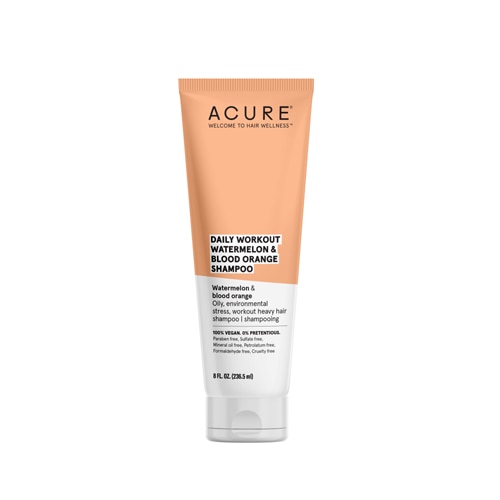[vc_row][vc_column][vc_column_text]Stress is running more rampant than ever before. In fact, one in three Americans feel so stressed at times, they have trouble making basic decisions such as what food to eat or clothes to wear, according to an October 2021 report from the
American Psychological Association.
Exercise is an effective and beneficial tool for stress management, but data shows that it's often overlooked. A recent study from researchers at
McMaster University in Ontario found that while many participants wanted to exercise in order to improve their mental health, stress left them feeling unmotivated to work out. Similarly, those who exercised less in times of stress also reported worsening mental health outcomes, the research points out.

Don’t ignore the link between a consistent exercise routine and healthy stress management—it may be the missing key to your stress relief. Here are just a few reasons to be more active in 2022 when stress begins to rise.
How does exercise reduce stress?
1. Exercise helps to stimulate your mood-boosting hormones
According to
Frontiers in Psychiatry, about one hour of moderate-intensity exercise on a daily basis can increase serotonin in the brain. This neurotransmitter hormone stabilizes your mood to promote a sense of mental and emotional well-being. When your emotions start to feel more balanced, your sleep habits, nutrition intake, energy levels, social connections, and self-worth can improve as well.
That increase in serotonin also helps regulate the amount of cortisol (stress hormone) in your brain, which makes it easier to manage the chronic effects of stress like anxiety, depression, hypervigilance, or impaired cognition. To maximize your serotonin release—and overall stress relief—choose an exercise routine that combines aerobic, resistance, flexibility and balance training, Frontiers in Psychiatry recommends.
2. Exercise protects body functions from the impact of stress
Psychological stress can lead to inflammation, oxidative stress and immune dysfunction in the body, explains the
Journal of Sport and Health Science. As immune function declines, and inflammation biomarkers escalate, you could be at risk for a number of serious illnesses. Some of these include metabolic syndrome, cardiovascular issues, kidney or liver disease, arthritis, type-2 diabetes and cancer, among others.
While too much vigorous or competitive exertion can heighten an inflammatory stress response, the journal indicates that consistent, moderate exercise can help strengthen immunity and lower inflammation. Over time, this will increase the body’s resilience to protect itself from the physical ramifications of mental and emotional stress.
3. Exercise allows your mind to enter a calm, meditative state
Some physical activities—like yoga, for example—are often called “meditation in motion.” This is because exercises that incorporate mindfulness help to redirect your awareness from internal rumination (the process of dwelling on stress) to focus on the external action you’re doing in the present, according to
Frontiers in Psychology. As a result, you feel calmer and less consumed with anxious, intrusive thought loops which can take hold in bouts of stress.
While yoga, tai chi, and other martial arts exercises are traditionally known for their meditative benefits, you can integrate mindfulness into any workout routine. For example, tune into each breath you take while out for a run or focus on your muscle contractions during a HIIT session.
The combined intensity and precision of exercise forces you to concentrate on the movement you’re performing, rather than the stressors in your life.
How to manage stress with exercise
Don’t just move your body every once in a while. To reap the most benefits, aim for at least 150 minutes of moderate-intensity exercise per week, as recommended by
Health.gov. Be sure to do some form of resistance training two days a week and find movement that you love—even ones that don’t feel like exercise.
Swimming, cycling, walking, dancing, playing sports or doing house and yard work keep your body moving. As long as it motivates you to be energetic and active, it counts as a workout.
If you still struggle to motivate yourself, here are a few ideas to stay active:
Add exercise to your stress management toolbox in 2022
You cannot always predict or control when stress will rear its head, but you can combat the mental, physical, and emotional impact with healthy outlets for stress management. A consistent exercise regimen is one of the simplest and most effective ways to keep those stress levels in check, so commit to moving more in this new year.[/vc_column_text][/vc_column][/vc_row][vc_row][vc_column][vc_text_separator title="Featured Products" border_width="2"][vc_row_inner equal_height="yes" content_placement="middle" gap="35"][vc_column_inner width="1/3"][vc_single_image image="157433" img_size="full" alignment="center" onclick="custom_link" img_link_target="_blank" css=".vc_custom_1642550220317{padding-right: 7% !important;padding-left: 7% !important;}" link="https://www.vitacost.com/om-energy-plus-citrus-orange-mushroom-superfood-powder"][/vc_column_inner][vc_column_inner width="1/3"][vc_single_image image="157435" img_size="full" alignment="center" onclick="custom_link" img_link_target="_blank" css=".vc_custom_1642550240298{padding-right: 7% !important;padding-left: 7% !important;}" link="https://www.vitacost.com/megafood-stress-protect"][/vc_column_inner][vc_column_inner width="1/3"][vc_single_image image="157434" img_size="full" alignment="center" onclick="custom_link" img_link_target="_blank" css=".vc_custom_1642550258064{padding-right: 7% !important;padding-left: 7% !important;}" link="https://www.vitacost.com/megafood-stress-protect"][/vc_column_inner][/vc_row_inner][/vc_column][/vc_row]
 Don’t ignore the link between a consistent exercise routine and healthy stress management—it may be the missing key to your stress relief. Here are just a few reasons to be more active in 2022 when stress begins to rise.
Don’t ignore the link between a consistent exercise routine and healthy stress management—it may be the missing key to your stress relief. Here are just a few reasons to be more active in 2022 when stress begins to rise.



